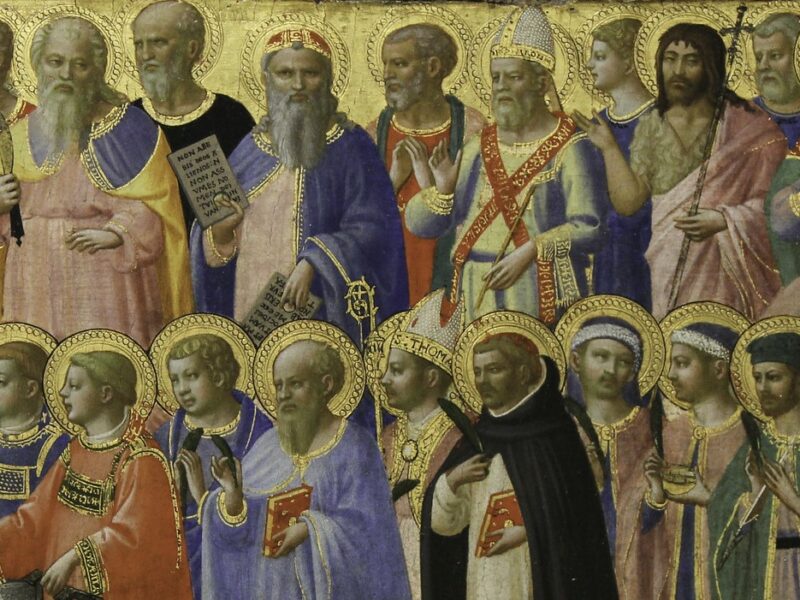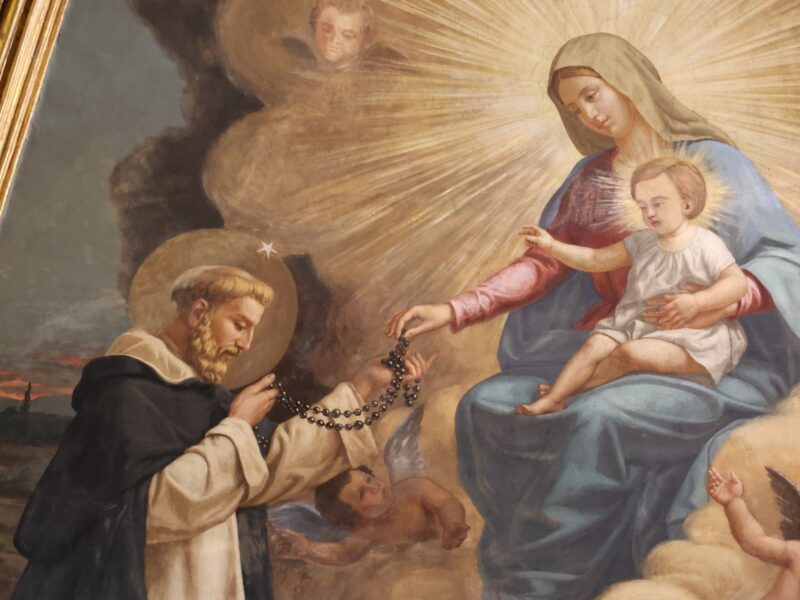
The Impartial Judge
Thirtieth Sunday of the Year. Fr Bruno Clifton preaches on the judgement and mercy of God.
‘The Lord is the judge, and with him is no partiality…’ (Sirach 35:15b). This would seem to be a good thing. Justice is blind; no one is above the law. Wealth or influence will make no impression before the righteous Judge. Judgment will be based on the facts of the case, and one would assume that God knows all the facts. ‘No secrets are hidden from him’ (Ezekiel 28:3). Even a plea of otherwise good behaviour will not mitigate or persuade.
‘Though I say to the righteous that he shall surely live, yet if he trusts in his righteousness and does injustice, none of his righteous deeds shall be remembered, but in his injustice that he has done he shall die’ (Ezek 33:13).
Ah… does the absence of partiality seem such a good thing after all? Lack of partiality, which is a lack of favour or grace, on this account appears cold, unforgiving, merciless, making justice something to dread. For, if God knows all the facts, then he knows (as we do, deep down) that the judgement will always be condemnation; the verdict will always be guilty, ‘since all have sinned and fall short of the glory of God…’ (Romans 3:23).
So why does Ben Sira praise God for his lack of partiality and for his speedy declaration of judgement?
The context for Ben Sira is not dread of but longing for justice. We must remember that for most of social history, and even still today, access to courts and arbitration, a legal process, were beyond the majority of people, especially the poor, the widow, the orphan. Most people had little recourse to what was an elite administrative system that privileges those who can afford it, whether simply by having the time to pursue cases, the leisure to be literate, and/or the wealth to ensure the favourable outcome.
‘You trample on the poor and exact taxes of grain from him… you who afflict the righteous, who take a bribe, and turn aside the needy in the gate’ (Amos 5:11, 12). The Bible’s prophets frequently condemn a system that exploits a needy majority who can never get justice; a society that produces the wry proverb: ‘To show partiality is not good, but for a piece of bread a man will do wrong’ (Proverbs 28:21).
Thus, the Old Testament appeal to an impartial God who hears the cry of the poor is not concerned with people who are fleeing judgement but rather those who seek it. Seek justice so that they might be acquitted from corrupt charges; so that they might get back what has been stolen or defrauded them; so that they might be vindicated.
‘He has sent me to bring good news to the oppressed, to bind up the broken-hearted, to proclaim liberty to the captives, and release to the prisoners…’ (Isaiah 61:1). The Bible’s prophetic writings are confident that God will not be persuaded by anything but the truth. ‘Whatever you have said in the dark shall be heard in the light, and what you have whispered in private rooms shall be proclaimed on the housetops’ (Luke 12:3).
‘The prayer of the humble pierces the clouds’ (Sir 35:21)—because the truth will out in the end.
So, when we turn to Luke’s parable, evaluating the contrast between tax-collector and Pharisee raises the uncomfortable question of which side of the court we expect to be when the poor appeal to the judge. Despite the Pharisee’s confidence, Jesus’s denial of his justification declares him guilty. At the same time, the tax-collector enters this plea himself.
The contrast is not who fears and who seeks judgement, nor who bears the guilt. If we seek judgement, we must also be prepared to acknowledge the judgment. We are all like other men (cf. Luke 18:11). The contrast is who acknowledges their need for mercy.
But then how to persuade an impartial judge? This parable of Jesus teaches us a new way of understanding what it means for God to show no partiality. If there is nothing about you that can influence God’s judgement, then there is also nothing about you that will exclude you from God’s mercy.
‘God, being rich in mercy, because of the great love with which he loved us, even when we were dead in our trespasses, made us alive together with Christ—by grace you have been saved’ (Eph 2:4–5).
Readings: Ecclesiasticus 35:12-14, 16-19 | 2 Timothy 4:6-8,16-18 | Luke 18:9-14



Alejandro
Bruno’s message reminded me of Doug Tooke’s OSV talk, “The Perfection of Imperfection” (www.youtube.com/watch?v=ACqDBnBFX40). In it, Tooke offers a powerful metaphor for mercy and grace, framing them as the true sources of perfection — in contrast to the illusion of perfectionism. I think that his definitions perfectly encapsulate Bruno’s point:
Grace is when we are spared from what we deserve.
Mercy is when we are given what we do not deserve.
Alejandro
Sorry, I misstated Tooke’s definitions. The accurate version is:
By Grace we are given what we do not deserve.
By Mercy we are spared from what we actually deserve.